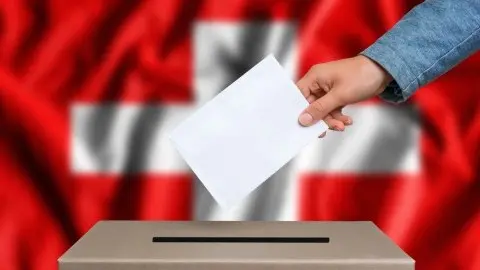The weaponization of trade - review
“International trade is about more than just economics, and not only for the US administration. Trade is about coercion and strategic influence.” So begins this short, thoughtful and timely book by Rebecca Harding and Jack Harding
Few can have missed the change over the past two or so years in the language used to describe international trade. Words such as ‘unfair’, ‘national security’ and ‘protection’ are now regularly used when describing international trade. This occurs not only in the US. The UK government has linked defence issues to the BREXIT negotiations.
Bad language
The authors are clear this change in language is undesirable. They write “there are no circumstances under which this rhetorical weaponization can be seen as a good thing.” The authors, a trade economist and specialist in security, draw on arguments from several fields of study to support their case. At least three dangers are identified:
- The language is aggressive. It feeds excessive nationalism. It promotes the idea that trade can and should be used to coerce and influence other nations and encourages the view that other nations are enemies.
- It undermines the institutions and agreements built since the Second World War, such as GATT and the World Trade Organisation. These were designed to encourage multilateral rather than bilateral agreement as the best way to foster peace and economic stability.
- It diverts attention from issues in domestic economies, such as the imbalance between savings and investment that lead to trade surpluses and deficits. It’s easier to blame a foreigner than think about how, for example, a low savings rate in one’s own country necessarily requires an offset that typically leads to trade and current account deficits. The authors call this “trade attention deficit disorder”. It is also related to the rise of popularism as easy answers are suggested to more complex problems.
From an implicit to an explicit trade-off
The idea that trade and foreign policy are related is not new. The authors acknowledge this, noting the work of Paul Krugman on strategic trade and Albert Hirschman’s 1945 book “National Power and the Structure of Foreign Trade”. However, the book argues this relationship has become a principle point of trade policy. Indeed the subtitle of the book “the great unbalancing of politics and economics” suggests a movement away from a previous implicit trade-off between the politics and economics of trade to an explicit favouring of the political dimension. Analysis of a novel database reveals increased trade in military and dual-use goods – and interestingly unreported trade - over the past 10 years. This supports the weaponisation argument. Comments from interviews with unnamed diplomats, politicians and business people with long experience in trade and trade negotiations add to the evidence. Reading Twitter streams on trade supports the argument, too.
A longer-term view
The book helps place current discussion of trade in current context but could do more to recognise a longer-run narrative. Support for a continued expansion of international trade and for the institutions that support it has been waning for a long time and certainly before the global financial crisis of 2007-2008. The works of authors such as Dani Rodrik, Joseph Stiglitz and Michael Pettis do not seem to be referenced. People such as these have been questioning the distributional effects of trade liberalisation for many years. They have also warned of the dangers excessive globalisation brings, leaving some people feeling they have little political power. These people feel multinational companies and unelected technocrats, central banks and international trade bodies have too much power. This problem is summarised in Rodrik’s globalisation trilemma. It is not that the authors ignore these issues – President Dwight Eisenhower’s 1961 farewell speech warning of a growing class of technical experts in a democratic society is cited – but more could have been done to place the latest deterioration in context.
These criticisms are quibbles. This is a well-written book with a solid argument that both specialists in trade and generalists wishing to understand the world better will benefit from reading.
This publication has been prepared by ING solely for information purposes irrespective of a particular user's means, financial situation or investment objectives. The information does not constitute investment recommendation, and nor is it investment, legal or tax advice or an offer or solicitation to purchase or sell any financial instrument. Read more
Download
Download opinion
21 May 2018
In Case You Missed It: Why June’s the month to watch This bundle contains 8 Articles